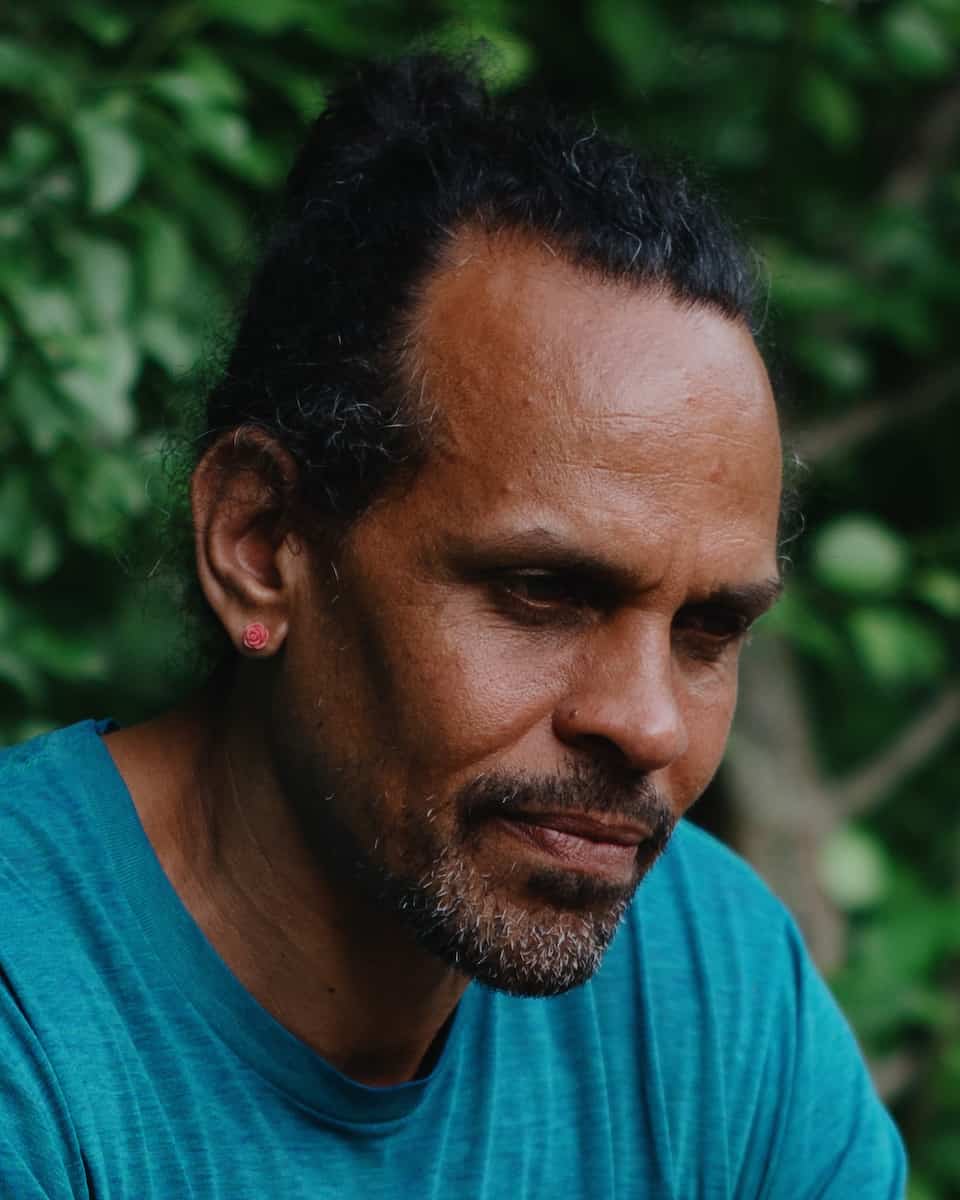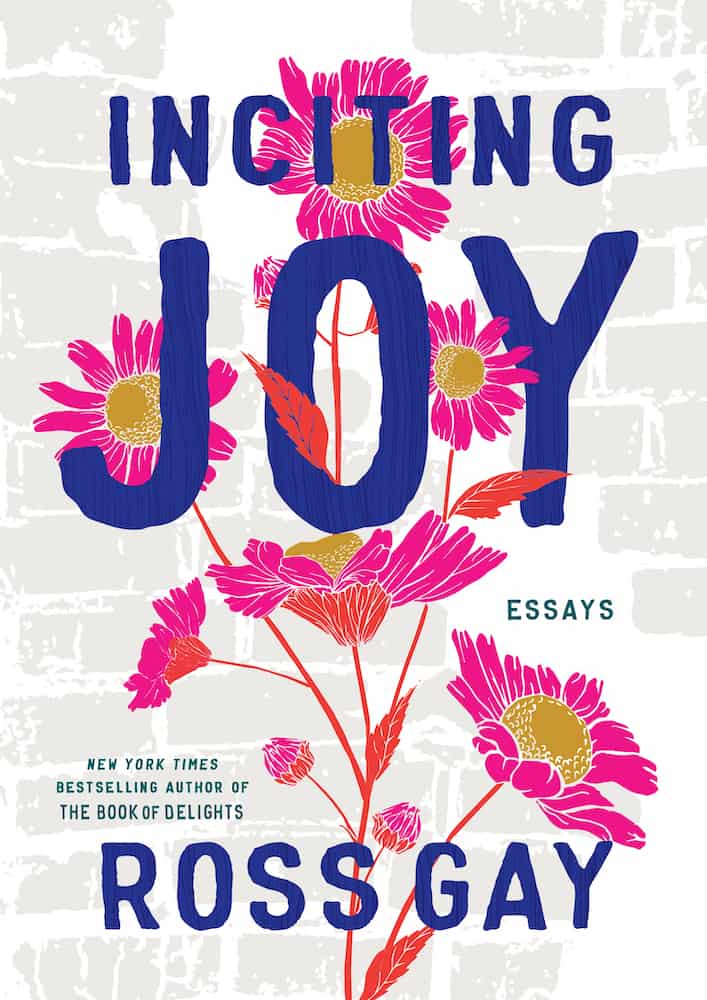Ross Gay’s first book of prose, “The Book of Delights,” presented his encounters with common and uncommon delights in life. Gay wrote short entries that he called “essayettes”—closely observed and written in a stream of lyrical consciousness. He has continued to mine the extraordinary in the ordinary in his new book, “Inciting Joy.” These beautiful, insightful essays explore racism, death, the joy of being in a community and interacting with the natural world.
Gay recently told JewishBoston he had been “thinking about joy and gratitude for a while. That said,” he continued, “‘Catalog of Unabashed Gratitude,’ my most recent poetry collection and ‘The Book of Delights’ came out and put me into another set of conversations I was lucky to be having. I had a lot of conversations with people about joy. And over the years, I kept on refining my definition of joy. In the end, those conversations incited joy.”
Gay and I discussed how delight and joy factor into Judaism’s elevation of the ordinary to the sacred through prayer. For example, there is the Jewish tradition of finding joy and holiness by saying a blessing specific to sighting a sunrise or a rainbow; to bless nature’s beauty and respect its ferocity. The concept of hiddur mitzvah—enriching a commandment with a beautiful ceremonial object or making one’s surroundings lovely as the catalyst to joy and delight—resonated with Gay.
In “Inciting Joy,” Gay calls his chapters “incitements.” “Through My Tears I Saw (Death: The Second Incitement)” concerns his father’s death, with whom he had a complicated relationship. Amid the tensions between them are moments of pure love. In one such instance, Gay helps his father walk in his hospital room. It’s also an example of how joy closely aligns with grief. “Grief Suite (Falling Apart: The Thirteenth Incitement)” catalogues men’s emotions, as Gay writes a compelling narrative of his mental health struggles.
Other incitements pay tribute to the father of a childhood friend that gave him cuttings from his fig trees. Gay transplanted those cuttings in his community garden in Bloomington, Indiana (he teaches at Indiana University). His prose revs up as he describes a pickup game of basketball. Losing his cellphone in New York set him off on a circuitous car ride in which he serendipitously found joy in asking for directions.
The following excerpts of Gay’s conversation with JewishBoston have been edited for clarity.

Ross Gay (Photo: Natasha Komoda)
On gratitude, delight and joy as synonyms
“Gratitude, delight and joy overlap. I think of joy as something that emanates from us as we help each other carry our sorrows. Joy understands and emerges from the fact that we and everything we love will die. So, it’s a grave emotion literally, as in the actual grave is implied in joy. And gratitude feels very similar—deep and abiding gratitude, a rich gratitude. We are beholden across the board, to each other.”
The relationship between sorrow and joy
“Inviting sorrow into our lives is how joy emerges. Joy is a profound, rich and completely entangled emotion. It’s an emotion that does not exist without the other aspects of our lives. There are other things that exist without attending to our grief or even acknowledging our grief. If you suppress your sorrow, you suppress your joy.
“Joy emanates from the evidence of being tangled and entwined. This is what we are, and if joy emerges from part of that entanglement, it’s because we are changing. We are not here forever. We are impermanent and for most of us that’s a sorrow. If we suppress our relationship to death, we’re also suppressing the relationship to our entanglement and what emerges from it.”
Writing about how joy and grief yields a sense of wonder
“I try to describe anything with great precision. I was just on my porch and looking at the honeybees, and I was noticing the flowers. I could get really close to that flower and look at it and describe it for a long time. It means being very specific and precise about the physical world. It is to understand that you understand almost nothing. And that action feels, to me, like wonder. When I walk down the street there is more than I could ever conceive of. That feeling is an indication of the vastness that we’re connected to.”
On “un-boundary solidarity”

(Courtesy image)
“I think of ‘un-boundary solidarity’ as a solidarity that is not dictated or mandated by the powers that be. The powers that be can impose permission and certain solidarities that can be along class, race and general lines. But once those solidarities get messy and mixed up, those powers that be put the kibosh on messiness. And the most un-boundaried solidarity is feeling solidarity with someone who is heartbroken, which is everyone. What if we start there? In all the essays in ‘Inciting Joy,’ I’m wondering about places in which there are structures in place to tend to the fact that we are heartbroken; we have needs and a community needs to hold itself together.”
On the structure of basketball and tending to heartbreaks
“When I think of basketball, there are these structures built into the game. Not that anyone would say that the structure is about tending to people’s heartbreaks, but people get included. No one gets to hog the court. Everyone fills all the roles. Someone gets to do the inviting; someone gets to be the guest. If someone gets hurt, there’s a way to deal with that. Like the structures in a game of basketball, there are certain endeavors in place to make sure that we take care of each other’s sweet broken hearts.”
On “supported bewilderment”
“There is an essay by the writer Fanny Howe called ‘Bewilderment,’ and I love it. It reflects how I think about writing and teaching too. Again, it comes down to what are our qualities, including that we’re heartbroken. We’re lost, confused, bewildered. We’re sort of like stumbling around. Some of the most wonderful classrooms are the ones in which the objective is to be with each other in our bewilderment. We should not suppress bewilderment, to corral, correct and fix it. Fixing bewilderment is also like fixing wonder. Bewilderment and joy are separate from one another because bewilderment implies a certain submission if you don’t fight it. And joy emerges from the fact that there’s more happening than we can understand.”
An excerpt from the eighth incitement in “Inciting Joy,” “The Orchard”:
“What we do in the here and now exists already beneath you boot soles in the future. Look for me there. Look for me when you turn on your air conditioner. Look for me when the hurricane is coming. Look for me as this virus that used to live in the depths of the forest enters your body. Look for me when you’re having an asthma attack. Look for me as you take only your skin with you. Look for me as you build your boat. Look for me in the wreckage.
“Or: look for in the orchard.”
Ross Gay will be at Brookline Booksmith on Friday, Oct. 28, at 7 p.m., reading from and discussing “Inciting Joy.” Get your ticket.








